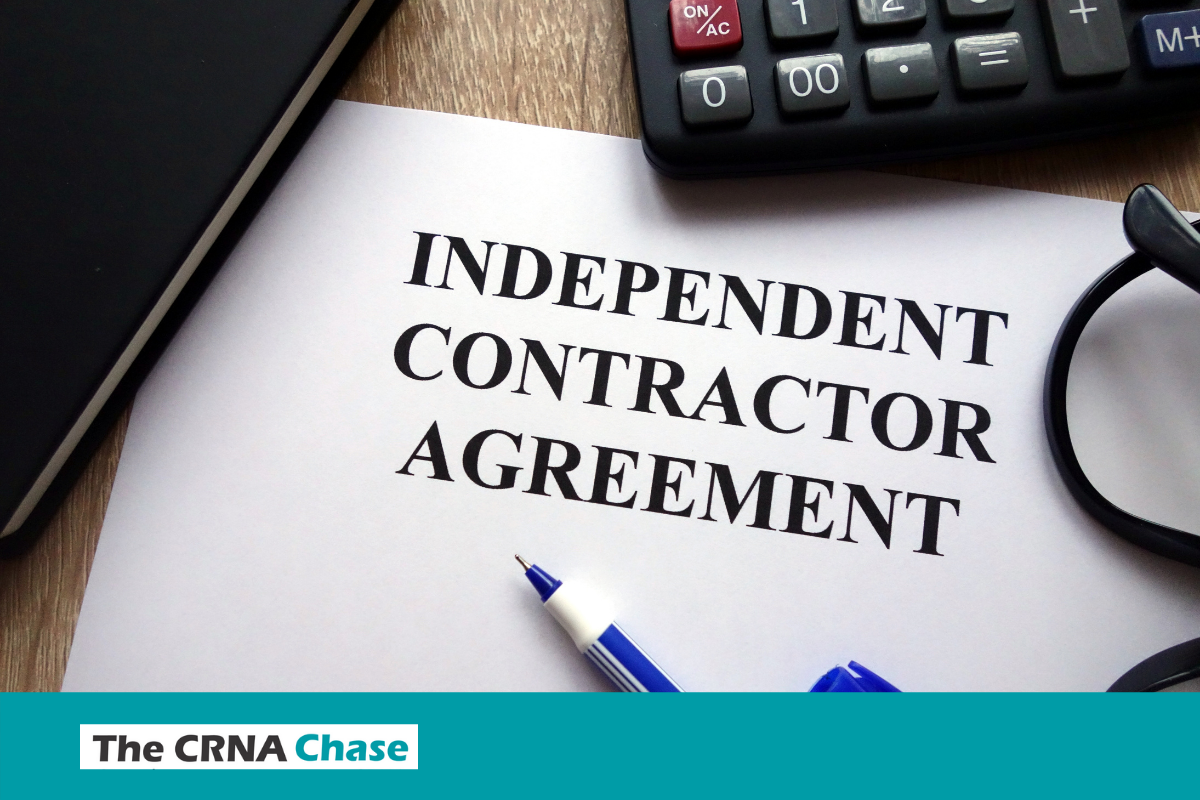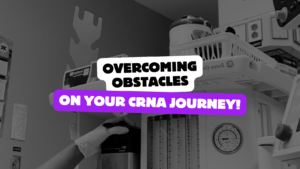People often ask me, what’s the best part about being a CRNA? There are many but I always include being an Independent Contractor CRNA for sure.
In fact, without being an Independent Contractor CRNA. I would not be able to attend my girl’s collegiate volleyball games. Or pay off thousands of dollars in debt and student loans. Or have the autonomy given to me in my current CRNA role.
According to research published by The Hartford News, the number of people experiencing higher levels of stress at work is more than three times higher if they work non-flexible hours. And we already know working as a CRNA can be stressful at times. So anything to decrease stress levels I am all for it.
In this article, we will take a deep dive into what are the benefits of being an Independent Contractor CRNA. Because I want you to have as much information as possible when making the decision on where you want to practice as a new graduate CRNA.
W-2 CRNA vs. 1099 Independent Contractor CRNA
CRNAs can either work as a W-2 CRNA or a 1099 independent contractor CRNA. Both are named after the tax forms provided to you by the companies: W-2 and 1099. The difference between the two is all about who has control.
In simple terms, a W-2 CRNA works for the company which hired them, participates in the employee benefits, and works according to the business’s needs. They receive a salary from the employer and taxes are withheld from their wages. While a 1099 independent contractor CRNA work for themselves according to the schedule they desire to work. They are paid for their time worked and pay their own taxes.
So, as you’ve likely figured out there are tax considerations when deciding which way to go as a CRNA.
1099 CRNA Tax Considerations
Before going any further, it’s important to look at the differences between W-2 and 1099 tax planning.
As a CRNA working as a 1099 independent contractor, you must pay your own taxes. But it can be advantageous because a 1099 CRNA can take tax deductions that a W-2 employee can’t take. They may be eligible to deduct business expenses such as:
- Mileage
- Health insurance premiums
- Home office deductions
- Travel
- Car expenses
- Cell phone costs
- Malpractice insurance
And there are so much more I could list. Please consult a tax professional to help you to maximize all your deductions so you keep as much of your hard-earned money as possible.
Advantages of being a 1099 CRNA
- Control over schedule- One of the biggest benefits to working as a 1099 CRNA is you have the flexibility to work whatever shift or hours you choose. So you can work as little or as much as you want according to the contract you set. You can also define the services you want to provide.
- Higher Pay- Most companies pay 1099 CRNAs at a higher rate than W-2 CRNAs because there are fewer costs associated with hiring them. Also, some 1099 CRNAs have the ability to set their own price.
According to the 2018 AANA Annual Compensation and Benefits Survey, the average freelancer earns roughly $230,000 per year, whereas a W-2 employee earns about $187,000 per year. And the top 10% of freelancers bring home over $300k annually!
- Become a business owner- One of the perks of being a 1099 CRNA is being a small business owner. In fact, I know of some CRNAs who have their own staffing companies. So it’s important you start thinking like the CEO. Basically, what is best for your employee(s) (you or others you’ve hired) and your business?
- Robust retirement plan. As a 1099 CRNA, you can make significantly higher retirement contributions. This is a great option for CRNA like myself who withdrew money from their retirement so they could go after their dreams.
- Not obligated to stay long-term. Since the 1099 CRNA is not an employee of the hospital/ facility, they have the ability to decide when and how long they plan to work.
- Choose your benefits. As an Independent Contractor CRNA, you find and choose your own benefits. Whereas, if you were a hospital CRNA you would be assigned a benefits package. While there are plenty of options for health, life, and disability insurance, it is up to you to find them as a 1099 CRNA.
- Enjoy full scope of licensure. Independent contractor CRNAs often work with little or no oversight at all therefore, they must be highly skilled in delivering anesthesia care. Mostly because they tend to work in areas like rural settings, small community hospitals, or in less desirable areas. So their skillset has to be spot on. But this leads to a great degree of autonomy as well.
- Work for multiple clients. A great perk of being a 1099 CRNA is you can work at multiple facilities. Right now I am a 1099 Independent Contractor at a hospital and a surgery center. So if you don’t like one or would like to split the days up you could easily do that. You just need to carefully factor in these things and include them in the contract.
Bottom Line
As a CRNA, you will make critical decisions on a daily basis. But first you must choose the best employment path for you once you become a CRNA. While becoming an independent contractor CRNA is not for everyone, don’t let others scare you from thinking about it. With proper research, planning, and a qualified financial and/ or tax advisor experienced with 1099 CRNAs, you will reap the benefits stated above and then some.
P.S. If becoming an Independent Contractor CRNA sounds like what you want to do, then Join CRNA Chase Academy so you can get accepted into a CRNA program ASAP!







